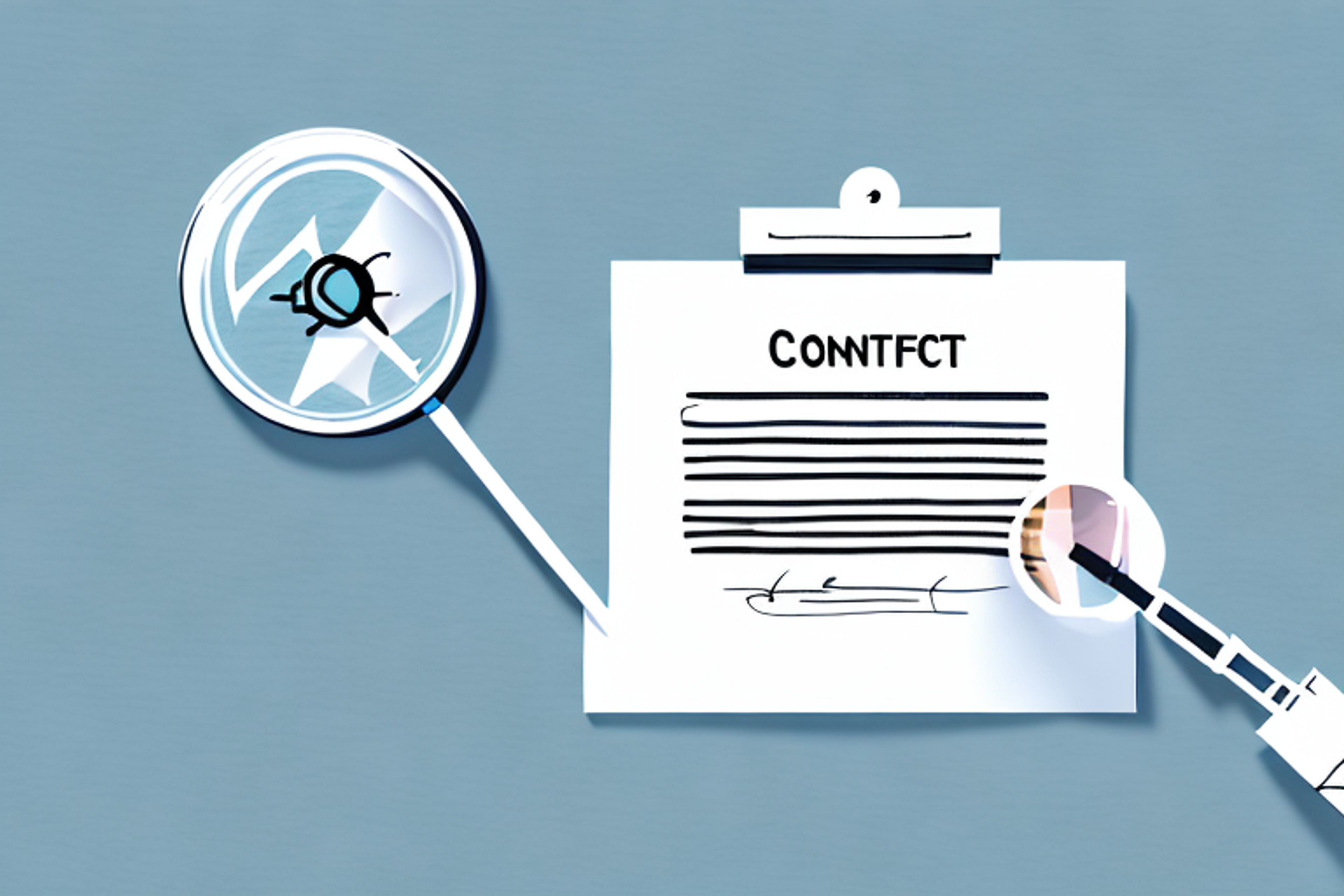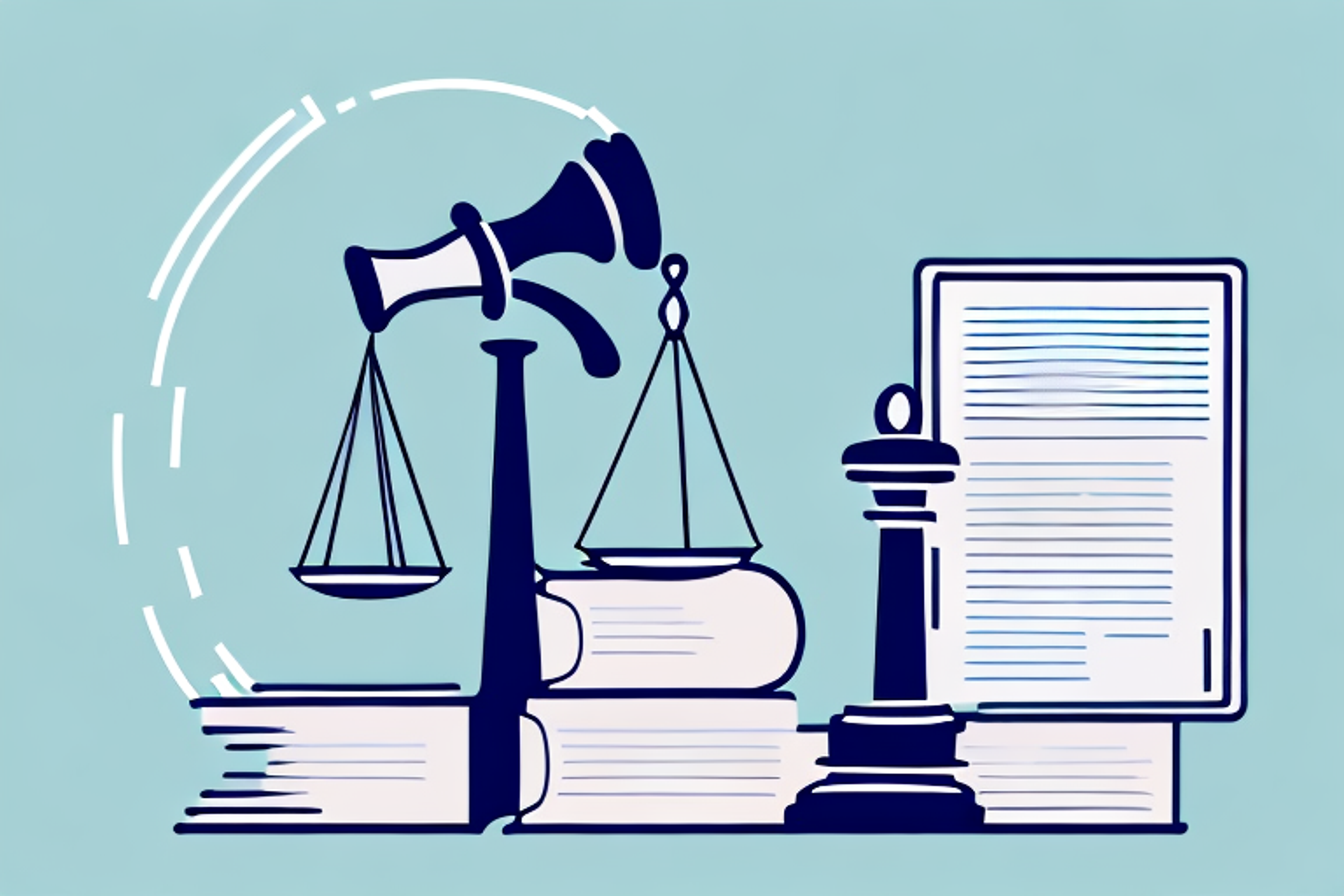The Art of Negotiation: A Key Skill for a Successful Law Career
Discover the secrets of successful negotiation in the legal field with our comprehensive guide.
Posted April 10, 2025

Table of Contents
Negotiation is a critical skill that every lawyer must possess to have a successful law career. Understanding the importance of negotiation and the role it plays in legal practice is crucial. In this article, we will delve into the fundamentals of effective negotiation in law, key strategies for achieving success, and common mistakes to avoid during legal negotiations. We will also discuss ethical considerations that every lawyer should be aware of when engaging in negotiations.
Introduction: The Importance of Negotiation in Law
For lawyers, negotiation is a part of daily life. Whether it be a settlement agreement or a business transaction, negotiations are prevalent in almost every aspect of a lawyer's work. The ability to negotiate with opposing parties effectively can make the difference between a favorable resolution and a disastrous outcome. Negotiation is a critical skill that every lawyer must have to forge a successful career in law.
Moreover, negotiation skills are not only important in legal practice but also in other areas of life. Lawyers who possess excellent negotiation skills can use them to resolve conflicts in their personal lives, such as in family or community disputes. Negotiation skills can also be useful in non-legal professions, such as in business, politics, and even in everyday interactions with people. Therefore, mastering the art of negotiation is a valuable asset that can benefit lawyers and non-lawyers alike.
Understanding the Role of Negotiation in Legal Practice
Negotiation is a problem-solving mechanism for resolving disputes among parties. It is the process of reaching an agreement that benefits all parties involved in a dispute or transaction. Lawyers use negotiation skills to achieve the best possible results for their clients. Legal negotiation is not about winning or losing; it is about striking a deal that satisfies both parties' interests.
Effective negotiation requires careful preparation, active listening, and clear communication. Lawyers must understand their clients' needs and goals, as well as the strengths and weaknesses of their case. They must also be able to anticipate the other party's arguments and objections and develop strategies to overcome them. Active listening is crucial in negotiation, as it allows lawyers to understand the other party's perspective and identify areas of common ground.
Legal negotiation can take many forms, including mediation, arbitration, and settlement conferences. Each method has its advantages and disadvantages, and lawyers must choose the most appropriate approach for their clients' needs. Mediation, for example, is a voluntary process in which a neutral third party helps the parties reach a mutually acceptable agreement. Arbitration, on the other hand, is a more formal process in which a neutral third party makes a binding decision based on the evidence presented by both sides. Settlement conferences are informal meetings between the parties and their lawyers, in which they attempt to reach a settlement without the involvement of a third party.
The Fundamentals of Effective Negotiation in Law
Effective negotiation involves several fundamental principles that lawyers follow. These principles include active listening, understanding the merits of each party's arguments, and preparing oneself adequately. Lawyers also prepare by developing a negotiation strategy that outlines their goals, interests, and contingencies.
Another important principle of effective negotiation in law is maintaining a professional demeanor. This means avoiding personal attacks or emotional outbursts during the negotiation process. Lawyers must also be able to adapt to changing circumstances and be willing to compromise when necessary.
Furthermore, effective negotiation in law requires a thorough understanding of the legal issues at hand. Lawyers must be able to analyze the strengths and weaknesses of their case and anticipate potential counterarguments from the opposing party. This requires extensive research and preparation before entering into negotiations.
Key Strategies for Successful Legal Negotiation
One key strategy for successful legal negotiation is learning to understand the interests of the other party involved. When a lawyer understands the interests of the opposing party, they can develop a negotiation strategy that is flexible and can meet the interests of both parties. Another key strategy is to avoid making assumptions about the other party's position. Instead, lawyers should focus on gathering information and data that can help them craft a successful negotiation strategy.
Additionally, effective communication is crucial in legal negotiation. Lawyers should be clear and concise in their communication, and actively listen to the other party's concerns and needs. It is also important to remain professional and respectful throughout the negotiation process, even if there are disagreements or conflicts. By maintaining a positive and collaborative attitude, lawyers can build trust and rapport with the other party, which can lead to a more successful negotiation outcome.
The Key Characteristics of a Successful Negotiator
A successful negotiator possesses some essential characteristics. These characteristics include good communication skills, the ability to empathize with opposing parties, the capacity for creative and critical thinking, and strong interpersonal skills. A successful negotiator also prepares thoroughly by understanding the issues and values at stake and the constraints of all parties involved.
Another important characteristic of a successful negotiator is the ability to remain calm and composed under pressure. Negotiations can often become tense and emotional, and a negotiator who can maintain their composure and stay focused on the issues at hand is more likely to achieve a favorable outcome.
In addition, a successful negotiator is also skilled at building and maintaining relationships. Negotiations are not always a one-time event, and a negotiator who can establish trust and rapport with the other party is more likely to have successful negotiations in the future.
Preparing for a Successful Legal Negotiation: Essential Steps to Follow
Preparation is key to achieving a successful legal negotiation. Before entering negotiations, a lawyer should first analyze the situation, establish their goals and interests, and develop a negotiation strategy. They should also gather all relevant information and data and consult with their client. Finally, before the negotiation commences, a successful lawyer will assess the strengths and weaknesses of their position. Adequate preparation allows a lawyer to be confident and assertive during negotiations and increases the chances of achieving a favorable outcome.
Another important step in preparing for a successful legal negotiation is to anticipate the other party's goals and interests. By understanding what the other party wants to achieve, a lawyer can tailor their negotiation strategy to address those interests and find common ground. This can lead to a more collaborative and productive negotiation process.
It is also crucial for a lawyer to maintain a professional and respectful demeanor during negotiations. This includes actively listening to the other party, avoiding personal attacks or insults, and refraining from making unreasonable demands. By maintaining a positive and constructive tone, a lawyer can build trust and rapport with the other party, which can ultimately lead to a more successful negotiation outcome.
Identifying the Interests and Goals of All Parties Involved in a Legal Negotiation
To achieve a successful legal negotiation, it is crucial to identify the interests and goals of all parties involved. The interests of each party usually extend beyond the disagreement at hand and extend to broader common objectives. Identifying these goals and interests enables a lawyer to create options that achieve these goals and interests. It also allows them to design proposals that offer broad mutual benefits for all parties involved.
One effective way to identify the interests and goals of all parties involved in a legal negotiation is to conduct a thorough analysis of the situation. This analysis should include an examination of the underlying issues, the parties' positions, and their respective strengths and weaknesses. By conducting this analysis, a lawyer can gain a better understanding of the parties' interests and goals and develop strategies that are more likely to be successful.
Another important factor to consider when identifying the interests and goals of all parties involved in a legal negotiation is the emotional component of the dispute. Emotions can play a significant role in legal negotiations, and it is important to understand how they may be affecting the parties' positions and decision-making. By acknowledging and addressing the emotional aspects of the dispute, a lawyer can help to create a more productive and positive negotiation environment.
How to Develop a Comprehensive Strategy for a Successful Legal Negotiation
Developing a comprehensive strategy for a successful legal negotiation requires a deep understanding of the situation, the interests of all parties involved, and the factors driving those interests. Lawyers can develop an effective strategy by assessing the strengths and weaknesses of their position, researching the other party's position, and anticipating their negotiating tactics. They also need to use their negotiation skills and strategies to craft proposals and counterproposals that help them achieve their goals while satisfying the interests of all parties involved.
The Art of Communication and Persuasion in Legal Negotiations
Effective communication and persuasion are crucial for successful legal negotiations. Lawyers should use language that is clear, concise, and easy to understand to communicate their positions and proposals. They should also be attentive to nonverbal cues such as tone, body language, and facial expressions. Using active listening skills to understand the other party's perspectives and building rapport can also enhance communication and persuasion skills.
Common Mistakes to Avoid During Legal Negotiations and How to Avoid Them
Even experienced lawyers can make mistakes during legal negotiations that can lead to unfavorable outcomes. One common mistake is failing to prepare adequately. Inadequate preparation can be costly and can cause a lawyer to miss opportunities that could have resulted in a more favorable outcome. Another common mistake is a lack of patience. Negotiations can take time, and lawyers need to be patient and not rush the process. Lawyers should also avoid being overly aggressive or confrontational during negotiations and should focus on achieving the best possible outcome.
Best Practices for Resolving Conflicts and Reaching Agreements Through Legal Negotiations
Best practices for resolving conflicts through legal negotiations involve understanding and acknowledging the other party's perspective, focusing on mutual goals, and using creative solutions to find common ground. It is essential to remain respectful of the other party's dignity and avoid attacking them personally during the negotiations.
Ethical Considerations in Legal Negotiations: What Every Lawyer Should Know
Lawyers must be aware of ethical considerations when engaging in negotiations. Ethical principles like honesty, loyalty, and confidentiality guide lawyers in their dealings with clients and opposing parties. Lawyers must also be mindful of conflicts of interest and avoid engaging in unethical conduct that could harm their clients or the legal profession.
Conclusion: Mastering the Art of Negotiation for a Successful Law Career
Mastering negotiation skills is essential for lawyers to have successful law careers. By understanding the fundamentals of effective negotiation, developing a comprehensive strategy, practicing effective communication and persuasion techniques, and avoiding common pitfalls, lawyers can achieve the best possible results for their clients. Always approaching negotiations with ethical principles in mind is also vital for maintaining a lawyer's reputation and integrity in the legal profession.











